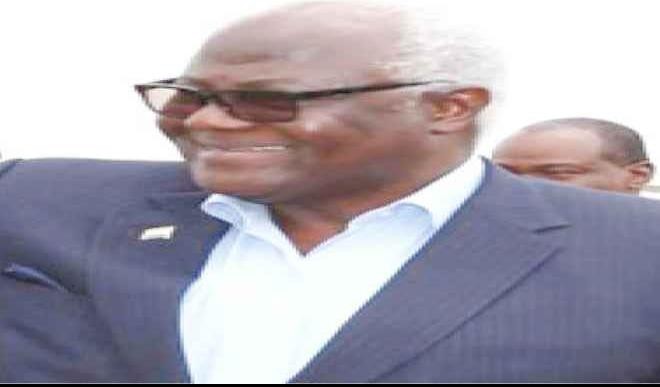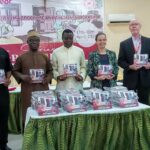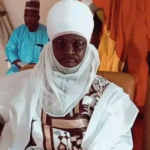
As we approach the elections of March 2018, politicians are busy again on the campaign trail making lofty promises. These elections may mark a turning point in our political trajectory. The tenure of Ernest Koroma’s All People’s Congress (APC) will end, and the nation will elect new tenants to State House, Parliament and city and district councils. The key question is whether the APC has done enough to improve the lives of the people to deserve a third term, or whether new tenants are needed to chart a new path for our country.
In 2007, Sierra Leoneans faced a similar choice after Ahmad Tejan-Kabbah’s Sierra Leone People’s Party (SLPP) had governed for two terms. Voters decided that the SLPP did not deserve a third term and voted Koroma’s APC to power. Tejan-Kabbah’s government prioritised stabilisation, rebuilding and reconciliation over development. The focus was on ending the war; disarming and reintegrating combatants; repatriating and resettling displaced populations; stabilising the dysfunctional economy; and rehabilitating collapsed institutions, such as schools, clinics, courts, markets, the military and the police-all of which were necessary for the rebuilding of communities and the state.
No one should under-estimate what was achieved by Tejan-Kabbah’s government. Indeed, we owe our peace to the rebuilding efforts of that period, even though much of the credit should be given to the United Nations, which co-governed aspects of the state. Voters experienced ‘buyers’ remorse’ in 2007 because stabilisation and humanitarian relief do not transform countries or raise living standards. Even though the economy grew at an average of about 7% from 2003-2007, infrastructure, energy, agriculture and other employment-enhancing activities were neglected.
Koroma’s record
In 2007, Koroma recognised the need to break with the humanitarian and stabilization model and put Sierra Leone on a development path. In his Agenda for Change, he prioritised energy generation, road construction, and a growth strategy that would use our mineral resources to diversify the economy and provide jobs to our under-employed youth. With the help of UNICEF, he also launched a free health care programme for pregnant women, lactating mothers and young children. The restoration of electricity to Freetown during his first 100 days in office was a landmark event, even though the project proved to be costly and poorly conceived.
Voters rewarded Koroma another five-year term in 2012 because they were happy with his work, especially on roads and electricity, even though light in Freetown was erratic during the dry season, and most towns and villages were still dark. Complaints about living conditions encouraged an upgrade of the Agenda for Change to the Agenda for Prosperity, with eight pillars to drive the development process and improve people’s wellbeing.
The Agenda for Prosperity (A4P) has been a failure. It lasted less than three years and metamorphosed into the Post-Ebola Recovery Plan, which essentially is about stabilisation and humanitarian relief. The A4P depended on high global commodity prices, which experienced a sharp dip in 2013-15, forcing the two iron ore companies, African Minerals and London Mining, to shut down.
The A4P’s idea of transforming agriculture into a business, through agricultural business centres and improving the productivity of farmers, was a major departure from the Tejan-Kabbah years of poor investment in agriculture. However, the FAO estimates that even though local production of food has increased, we are still a net importer or rice, with an import dependency ratio of 18%. Shockingly, the 2017 Global Hunger Index has classified Sierra Leone as the third hungriest country among 119 countries. Despite Koroma’s promise in his 2012 inauguration speech that he would lay his life for the youth, the A4P lacked a growth strategy that would generate mass-scale employment. The youth programme has been largely about creating multiple youth agencies, giving a few loyalists government jobs, offering micro credit and, with World Bank support, providing short term employment through public works and skills training to less than 10 percent of the underemployed youth.
The Ebola pandemic sounded the death knell of the A4P, as many companies, such as Addax Bioenergy, folded up; the country was cut off from the rest of the world; and GDP contracted sharply by 21% in 2015-wiping out the growth gains of 2012-13 when the country was touted as having the fastest growing economy in the world. Under different management, some companies have restarted limited operations, and growth is projected to return to a modest level of 5% in 2017. But the needle has not moved much as we continue to languish at the bottom of the heap in most development indicators.
Sierra Leone has once again become a site for humanitarian relief and stabilisation. The Ministry of Finance runs a cash budget (ahn to moht), which necessitates weekly meetings by a cash management committee to monitor revenue flows, expenditure commitments, and payments. It explains why there have been serious delays in disbursing funds to ministries. The International Monetary Fund has increased funding but under tight conditions on borrowing and expenditure; and the government announced wide-ranging austerity measures in March 2016. Inflation is about 20%; prices of basic commodities, such as rice, have skyrocketed, with the price of a 50 kilogram bag of rice experiencing about a 60% increase between 2015 and 2017; and the leone has depreciated sharply in relation to the dollar by about 65% between 2014 and 2017.
The development challenge
Sierra Leone is once again at a cross-roads in its search for development. A successful development agenda requires a stable macroeconomy and three fundamental policy initiatives. The first is a growth strategy that will diversify the economy in terms of sectoral contributions to GDP and employment. It could mean putting the accent on light manufacturing, with productive linkages with agriculture, as was done by the East and Southeast Asian countries; or promoting a modern services sector that is linked to industry, as India is reported to have done recently; or using agriculture as a base to diversify into manufacturing, through agri-business. It is only when countries get their growth strategies right that they can generate sufficient employment with good incomes and end poverty. Dependence on the minerals sector alone, which is capital intensive and prone to capture by big business and a selected elite, won’t do it.
The second requirement is quality education and health systems. Education and health have intrinsic values and are powerful instruments for growth. Industrialists need healthy and productive workers that understand production processes and can cope with technological change. And farmers need to understand modern farming techniques. Delivering quality education is not just about building schools, admitting more students and spending more money. The real challenge is about improving the quality of teaching; ensuring that students are competent in maths, science and literary subjects; having manageable class sizes and a clean environment; and motivating teachers through training and decent salaries. The universities– especially Fourah Bay College, which is in a derelict state and requires books, journals, teaching facilities, and qualified staff who publish in their disciplines–also need a massive overhaul.
Infrastructure development is the third part of the triad. This deals with energy, roads, water supply, telephone networks, transportation, drainage and sewage systems. Electricity powers factories, modern agriculture, small businesses and homes. Roads connect towns and villages and integrate domestic markets. Water is life. A good telephone network is vital for personal communication and business operations. And proper drainage and sewage systems prevent flooding and disease. Progress has been made on roads and electricity, although what has been achieved is a fraction of what needs to be done. Umaru Fofana’s recent report about the baby twins who died in Kamakwie because of the poor condition of the roads is heart-rending. And despite countless promises of 24 hours of electricity in Freetown, many parts of the city are still dark, and supply is unpredictable for those with access during the dry season. Thanks to mobile phones, significant strides have been made in telephone access, but the land line network, which provides greater security, is poorly developed; and despite the availability of fibre optic, internet connection is slow and costly. And the recent floods and mudslide have laid bare the government’s utter failure to upgrade our drainage system and protect our natural environment.
The development triad requires democratic and inclusive politics. Many would argue correctly that the developmental states of East Asia transformed their economies under authoritarian conditions. However, in Sierra Leone, lack of democracy has often nurtured cronyism, large-scale corruption and kleptocracy. And non-inclusive politics has created a divided public, which invites periodic violence. The benefits of development spread more widely when a developmental, inclusive and democratic party establishes structural ties with working people.
Yusuf Bangura Nyon, writes from Switzerland, [email protected]




